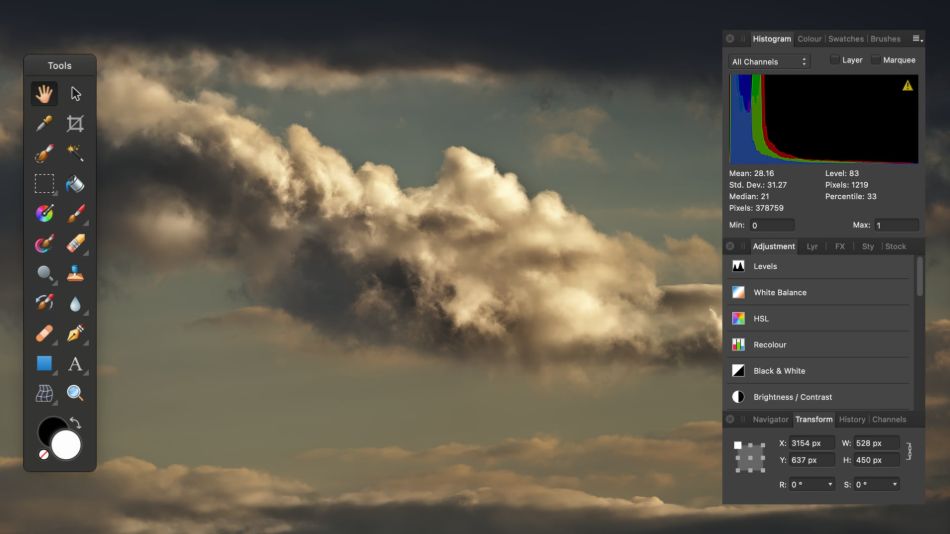
- #Luminar 3 plugin with affinity photo for mac install#
- #Luminar 3 plugin with affinity photo for mac code#
- #Luminar 3 plugin with affinity photo for mac plus#
- #Luminar 3 plugin with affinity photo for mac free#
These updates usually bring with them useful new features (as well as bug fixes and under-the-hood improvements) – we feel that the asking price is justified when you see just how much value you receive after purchase.
#Luminar 3 plugin with affinity photo for mac free#
Though Luminar is pricier than Affinity, it’s stil competitive as a one-time purchase price, and Skylum publishes a whole roadmap of free updates which will become available over the coming months. One major difference between the two pricing plans is that Affinity has to be purchased separately for each OS, while Luminar’s multiple licenses can be used across different operating systems.
#Luminar 3 plugin with affinity photo for mac install#
Once paid, users can install it on up to five different computers. Luminar’s fee differs each year – click here to see how much it costs today, but in general, it’s around $70. Users can install it on up to two computers for commercial purposes, or five PCs for non-commercial purposes. Affinity Photo charges a one-off fee of US$49.99.
#Luminar 3 plugin with affinity photo for mac code#
Try entering Luminar coupon code SHOTKIT15 at checkout to save $15.īoth Luminar 4 and Affinity are available as a one-time investment for Windows and Mac OS. Luminar’s Edit and Library functions are separate, and an information section displays metadata about exposure settings.Ĭonsidering that both applications have slick, customizable, easy-to-use interfaces (despite an initial learning curve), we can’t pick a clear winner here. Like Affinity, it has a configurable interface and allows you to choose which adjustments you’d like to have displayed in the control panel. Luminar, meanwhile, is known for its simplicity and a clear user interface. The photo interface of Affinity Photo is also highly customizable so you can change it to fit your needs. Once you get the hang of it though, Affinity is pretty straightforward and easy to use.

#Luminar 3 plugin with affinity photo for mac plus#
In picking a winner here, we’re going with Luminar because the workflow is more streamlined, plus you can easily sync adjustments made in one image with any other photos in the image library – a great time-saver, especially for professional photographers (see our Luminar tutorial to see how simple it is to get started.) Any adjustments can be tightly and selectively applied to parts of an image using masks, and it tends to allow for very accurate edits.Īs mentioned above, it wouldn’t be unfair to think of Luminar as being more like Lightroom and Affinity Photo as being more like Photoshop when it comes to image development. Luminar, meanwhile, allows for non-destructive image editing in a single workflow.


Additionally, batch processing is limited to one Persona at a time. This two-step process sets Affinity at a bit of a disadvantage because it means that you can’t easily change your initial adjustments once you’ve moved from one Persona to the next. The thing about this is that you really need to commit to your RAW adjustments first in the Develop Persona before you can move across to the Photo Persona and make use of its more powerful tools for advanced editing. The main difference between Luminar and Affinity Photo when it comes to RAW image development is the workflow.Īffinity Photo has different areas called “personas”: pre-processing is done in the Develop Persona, while detailed photo editing happens in the Photo Persona.


 0 kommentar(er)
0 kommentar(er)
